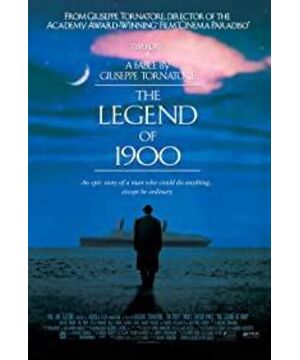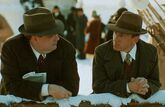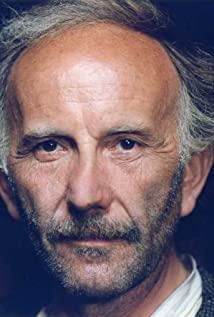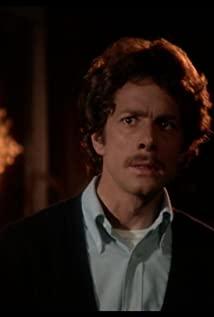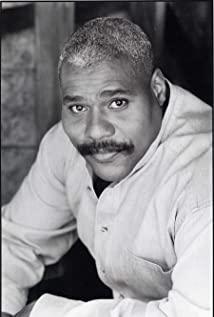There is a German proverb that says: Once, nothing. It is indeed a philosophical nation. Watching a good movie once is the same as not watching it. After years of revisiting "The Pianist at Sea", it finally became a "story".
This time, I noticed a sentence that I didn't even notice when I saw it for the first time, the sentence the fat trumpeter said at the beginning: "As long as you have stories, as long as people listen, there will always be hope. "When he reiterated that sentence at the end of the movie, I got it, that's what the movie is about (seeing no, saying it twice. Saying it once means not saying wow).
This movie makes everyone feel the most heart-wrenching, must be the choice of getting off or not. When I watched it for the first time many years ago, although I thought it was unbelievable, I was still convinced by 1900's statement. Like the fat trumpeter, I "respected" his choice in my heart. But the second time I watched it, I had several levels of feelings. The first level, I don't agree with 1900's statement, I disagree with him. In my opinion, his view of the infinity of the outside world is very external (crap, how do you expect a person who has never entered the world to see it from the inside). From the outside, the road seems to be endless, but once you start the road, anyone will find that it is limited. We can call this limited "fate" or "destiny", but this is a person walking alone. It takes a lot of time to look back and realize that, in the eyes of a young man standing at the beginning of life, the world is of course dizzyingly infinite. But unfortunately, 1900 never gave himself a chance to "look back", and his view of the world will always remain at the moment on the gangway.
But the second level has come again. Is it his fault for making such a choice? No, I really can't bear to blame him.
Xiang Biao was interviewed in the latest issue of "Thirteen Invitation". When he talked about the "way out" of modern society, he said that the way out is not in personal individuation, but in "relationship". He even said appallingly that there is no natural individual freedom and dignity, freedom and dignity are in relationships.
In fact, Marx has said this long ago, but it does not sound so shocking. He said that man is the sum of all social relations. If this sentence is read appallingly, we can say that there is no pure individual without social relations.
1900 said, "I don't exist" when he sadly decided to take his own life. In a way, he was right. People always think that everyone has a "choice" and that choice is innate, but that's not the case. A pure individual does not choose because he has no reason to choose this or that, a person, whatever.
Really, one can do anything.
We often make choices for our loved ones and significant others, living here for this person, doing that thing for that person, having this hairstyle because that person likes it, and not eating garlic because that person hates it. These often become our constraints, we feel too unfree, so we long for "personal freedom" to make whatever choices we like. Really? Would you "like" anything if anyone had nothing to do with you?
Who disembarked in 1900? His biological parents never showed up, and the closest person who raised him died young. He really can do anything. Fortunately, God gave him music, and he was able to wander in the world of spirit and imagination. Does he have a future he must achieve, a place he must go? What is truly endless before him is not the objective world, but freedom, and endless freedom is nothingness.
The third level, I think he still has a reason to disembark. First, he can get off the boat for the fat man. Fat Man is so important to him, because Fat Man is the only person in the world who listens to his story, and when there is someone listening to your story, the "person" begins to exist. Because the connotation in the story goes beyond you to gain meaning, when people (such as me) read your story, they can look at themselves in this mirror like you look back in old age, and they will use the story to torture themselves : If it was me, get off the boat or not? It means that you have lived many times again, and you have had countless opportunities to choose. Some people may have disembarked because of this understanding. In 1900, you will live forever in the story, you are no longer "personal". ", but a member of "Humanity". All because of this storyteller, this best friend of yours.
Then why don't you disembark for him? He begged you, not only for you, but for himself, because you also saw that without your partner, he did not do well in the war years, and even lost his music. With your superb abilities, this duo of you will surely shine. And don't you see him lonely too? In front of you is not endless, but there is a road, this road is in the request of another person, in his outstretched hand, as long as you also stretch out your hand, the world will be more specific immediately .
Second, you can also disembark for that girl. There are not thousands of roads in New York City, there is only one road, 28 Fermor Street (sorry I forgot the name of the street, this is made up), she and her father are waiting for you there. Didn't you also get the courage to disembark from the story of her father? You totally understand the truth. You know that you can't hear the sound of the sea when you stay at sea, you can only hear it when you go to the land and look back at the sea. Isn't that what the story is about? People must look back before they can reflect. Only by reflection can they form their own history. With history, they can be passed on. Generations of generations learn from the experiences and lessons of their predecessors and move forward. The way living things exist.
But who could have the heart to blame him? Who can give him encouragement when he is confused, courage when he is decadent, and a reason when he is empty? Fate has brought him too little entanglement.
I also want to blame the fat man. If I were fat (me today, not the first time I watched this movie), I'd knock 1900 out at the last moment and drag him out, once he hits the road he'll know what "the road is endless" is bullshit , all I have to do is throw him out and talk about it. And I was even persuaded by him to leave him to death tearfully. At this time, I will feel that the so-called respect of each individual's choice in the West is really bullshit, and they should be asked to look at Xiang Biao, or look at Marx.
But the fat man made a good story after all. "The Pianist at Sea" is a good story because it asks the eternally good question: To disembark or not to disembark? This is actually the ultimate question of "to be or not to be". Tears crawled down my cheeks in the darkness of the movie theater, thinking of my youth, those years I kept asking myself "When will my life start?" Some people may ask, why didn't it start? Aren't you alive? But I myself know that doesn't count, doesn't count, just like 1900 knew it didn't count. I don't have a story yet, and no one listens to it yet.
View more about The Legend of 1900 reviews


